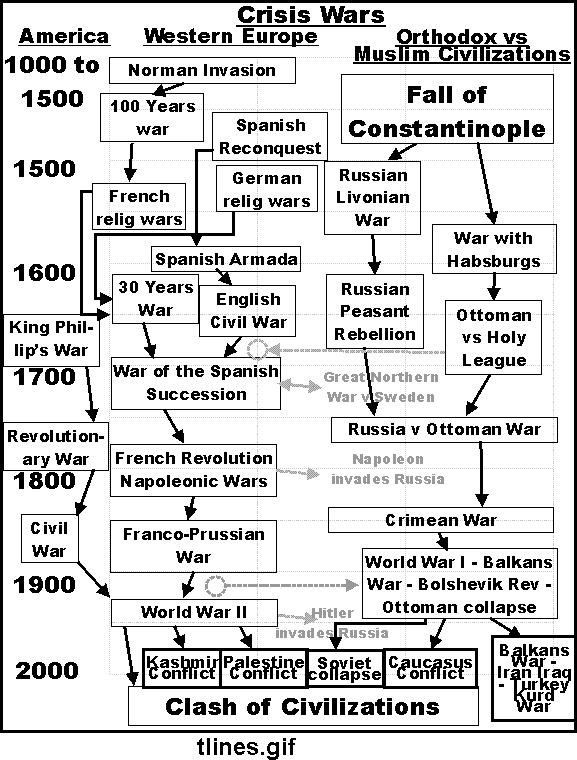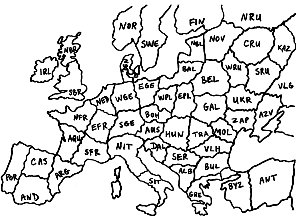To all:
I recently received a lengthy critique of my book from a person who
had read it after seeing my presentation last month.
The message was quite skeptical and criticized many different levels,
everything from the number of typos to the entire theory, and why
more people don't accept it.
Since his list was fairly comprehensive, containing most of the
criticisms I've been hearing on an individual basis since my book
came out, and since he questions the entire generational paradigm as
well as my book specifically, I thought it would be useful to post
his message, along with my responses.
I know that other people in this forum have expressed frustration
that the ideas in the Strauss and Howe books Generations and
The Fourth Turning have not received wider acceptance, so
the criticisms that aren't entirely specific to me are part of the
greater picture of why more of the public doesn't accept this subject
matter in general.
Thus, this thread can be used as an opportunity to discuss how better
to present and gain more public acceptance of the entire generational
paradigm.
Since I have a pretty thick skin anyway (a woman that I once dated
told me that the problem with me was that I was "too well-defended,"
an interesting if puzzling characterization), this thread can serve
as a place for any other criticisms of or objections to Generational
Dynamics and generational theory that might come up in the future.
Sincerely,
John
John J. Xenakis
E-mail: john@GenerationalDynamics.com
Web site: http://www.GenerationalDynamics.com
- Join Date
- May 2003
- Location
- Cambridge, MA
- Posts
- 4,010





